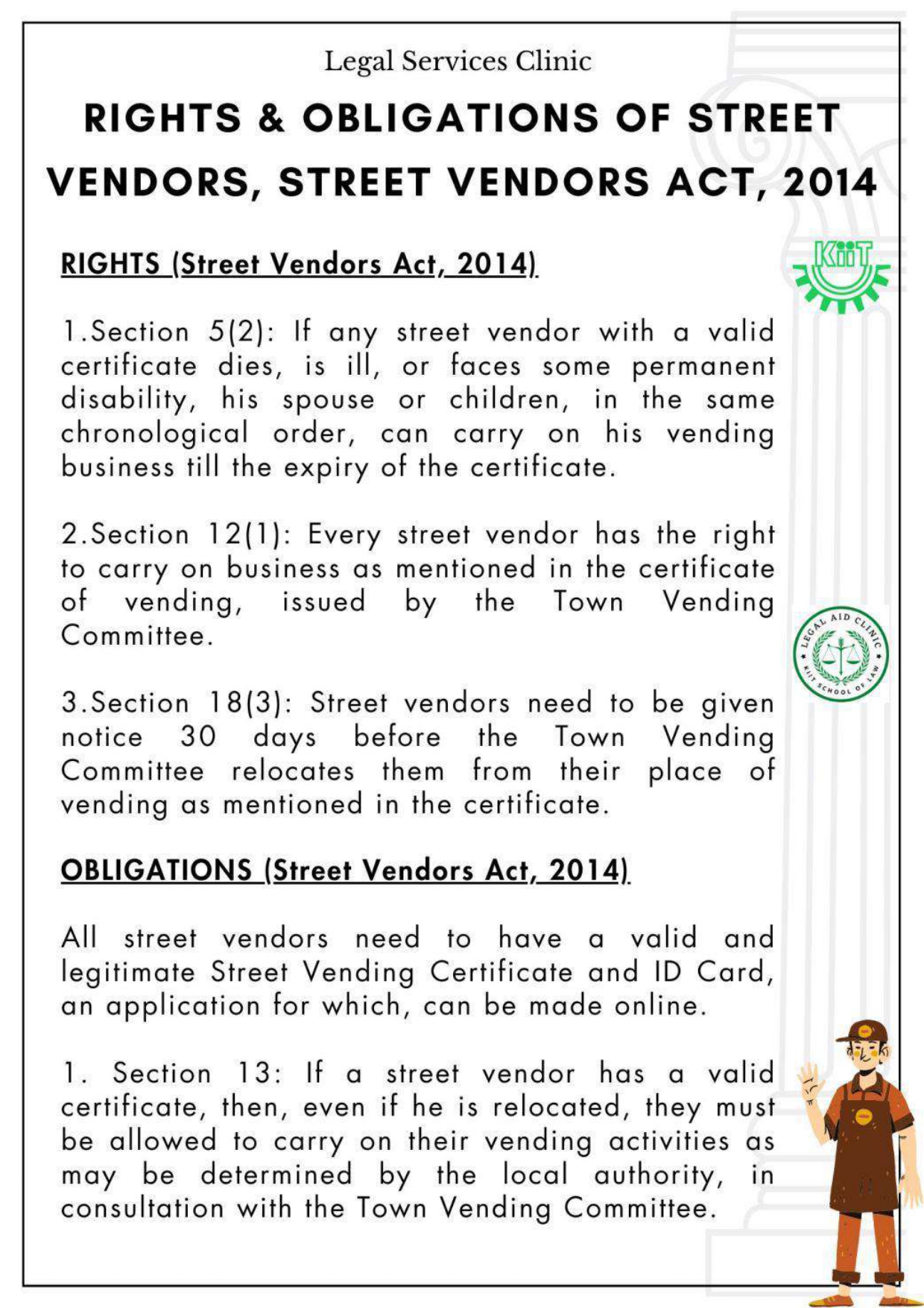The initiative led by the Legal Services Clinic of KSOL, KIIT School of Law, exemplifies a holistic approach to addressing the legal needs of street vendors in Bhubaneswar. The clinic adopted a multi-pronged approach to engage with street vendors, focusing on interaction-based understanding and building trust. By conducting expeditions into different vending zones and engaging in meaningful conversations, they were able to gain insights into the challenges faced by vendors and provide them with relevant information and guidance.
Through interactions and distribution of pamphlets in both English and Odia, the clinic provided street vendors with information on their rights, obligations, and applicable penal provisions. They addressed common issues such as lack of registration and licensing, helping vendors understand the importance of compliance with legal requirements.
There were 13 students from the KIIT School of Law who came together with a noble intention: to educate and empower street vendors in their community. Recognizing the importance of hygiene, the benefits of self-run businesses, the process of obtaining a Business Management System (BMS) license, and the legal protections available, they decided to employ an engaging and effective method: a nukkad natak, or street play.
The choice of a nukkad natak was strategic. Street vendors often operate in bustling, crowded areas where traditional forms of communication might not reach them effectively. By performing a street play in front of the vendors themselves, the students ensured maximum visibility and engagement.
The content of the nukkad natak was carefully crafted to address the specific needs and challenges faced by street vendors. Scenes depicting proper hygiene practices, such as handwashing and food handling, were interspersed with information on the advantages of running one’s own business. This included increased autonomy, flexibility, and potential for higher earnings compared to working for others.
Moreover, the students provided valuable insights into the process of obtaining a BMS license, which is essential for formalizing and legitimizing street businesses. They explained the steps involved in the registration process, including necessary documentation and procedures to follow. By demystifying this often daunting process, the students empowered the vendors to take the necessary steps towards legal compliance and recognition.
Importantly, the nukkad natak also highlighted the legal protections available to street vendors. Many vendors operate in precarious legal environments, facing harassment, eviction, or confiscation of their goods. The students emphasized the rights and protections afforded to vendors under relevant laws and regulations, empowering them to assert their rights and seek redressal in case of any injustices.
Overall, the initiative taken by the thirteen students of KIIT School of Law exemplifies the power of education and community engagement in effecting positive change. By creatively using street theater as a medium, they not only raised awareness but also inspired action and empowerment among street vendors, ultimately contributing to the betterment of their community.
The Street Vendor Legal Aid Mentoring program initiated by KIIT School of Law, Legal Services Clinic has had a transformative impact on the lives of street vendors in Bhubaneswar. By providing legal guidance, simplifying registration procedures, and fostering trust between vendors and legal authorities, the program has empowered vendors and contributed to the community’s well-being. The success of the program underscores the importance of proactive legal assistance and community engagement in addressing socio-economic challenges.



